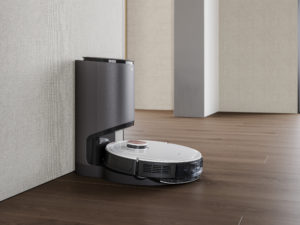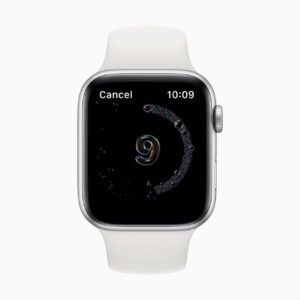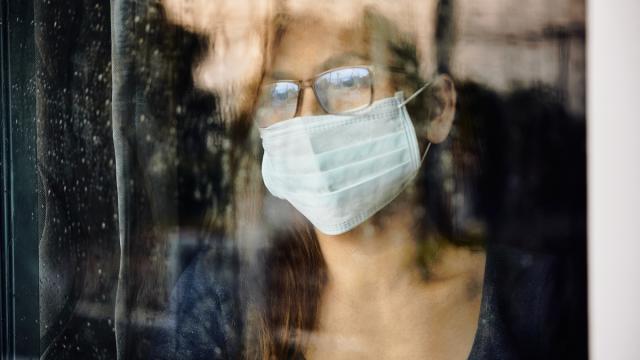Although 2020 feels like it’s gone on for 1000 years, the Covid-19 pandemic has only been a serious global problem for eight months. We’re still learning so much about how it works, and what we can do to prevent the spread beyond staying at home as much as possible and wearing masks when we can’t.
But with the news this week that the virus can survive for up to 28 days on phones, and a reminder that deforestation and climate change is increasing the risk of future pandemics, now is a good time to look at how this pandemic might shape technology in the future. There’s also some interesting innovations and products that can help now, particularly with any new anxieties you might be feeling about germs.
Here’s what needs to happen.
More consideration and instructions for how to clean a device
Look, I get it, no one likes cleaning. “You can wipe it down with disinfectant now!” is not a sexy slogan for a phone announcement. But 28 is a lot of days for a virus to survive on a phone, and so we’re going to need some clearer messaging from tech companies on how to clean phones, headphones, keyboards and other products that get gross fast. Cleaning gadgets needs to become a habit, because there’s a good chance your phone is dirtier than your toilet seat. But because all the different kinds of phones have different coatings and ratings, I can’t advise you more than just to use a damp cloth, which isn’t going to do much. You can use antibacterial wipes on some phones, but it’s best to check your manufacturer’s advice.
Better concessions for people wearing masks
It’s so disheartening to see the number of people on my daily walk who pull their masks down to use their phones. We’re currently only allowed outside for two hours a day in Melbourne, and it’s not that hard to put in your PIN. However, it is hard to resist the lure of a seamless unlocking experience. Having Touch ID or other fingerprint scanners as a back-up option would reduce that behaviour. A lot of Android phones do that, but unfortunately the iPhone 12 stuck with Face ID. Since a vaccine is a year away at best, masks are going to be here to stay for a long time, and should now become a habit for anyone who has a cold and still needs to go about their day. Making the experience of wearing a mask as easy as possible would be good for everyone.
More consideration for how users need to touch devices
The worst part about cleaning is that you have to touch relatively gross things to make your home less gross. Taking the bin out in an apartment, for example, involves either touching the bin chute handle, which you know isn’t cleaned anywhere near as much as you’d like, or the lid of the skip. That’s fine enough, but then you need to touch your front door handle and several other doors to get to your sink. An innovation in contactless bin lid tech would be great for folks who live in high rises and don’t have full control over their wheelie bin as they would have if they lived in the suburbs.
That also goes for in-home cleaning devices that are gross. The person who makes a contactless toilet cleaning robot that you never need to touch will deserve all the prizes.
One good example of this on a smaller scale is the Ecovacs auto empty station, which takes the messy part out of emptying your robot vacuum cleaner. It saves time and means you can forget about your robot for a while, but also reduces how frequently you come in contact with the detritus that’s been vacuumed up.

Make sure the tech is helping and not hurting
Earlier this year I became really enthusiastic about the idea of using UV light boxes to clean review gadgets, and keep phones and game controllers sanitised. Unfortunately, the Australian Radiation Protection and Nuclear Safety Agency issued a product warning advising consumers of the dangers of portable devices that emit ultraviolet radiation.
The statement read:
“Using these small commercially-available lamps in the home is not recommended and can be very dangerous.’
Concerns include the variability of effectiveness of lamps and the potential to provide a false impression of safety if the intensity or duration of exposure is not sufficient to kill the virus. In addition to varying reliability, there are also serious health risks if skin or eyes are exposed to UVC light.”
That makes sense, but is unfortunate given the excitement around UV. LG even recently released their TONE Free true wireless ear buds, which are comfortable to wear and sound great, but have UV lights in the case to “sterilise” the buds after each use. Being able to do that would be amazing. It’s unlikely these can actually do that, but perhaps the UV Nano in this case is different to what ARPANSA was talking about.

Have tech that helps build better habits
Little things like the handwashing reminders on the Apple Watch that nudge you to wash your hands for a full 20 seconds every time you come home, or if it senses that you haven’t washed your hands for a while are great. There’s clearly been a lot of gaps in our education around hygiene, so getting the devices we rely on to try and fill those gaps is a great idea.

Keep it environmentally friendly
Climate change and deforestation are only going to increase the number of pandemics we have in the future. Tech needs to work on becoming more sustainable, and cleaning solutions for technology need to go beyond single-use wipes and compressed air cans. We also need to think carefully about whether we want unrepairable true wireless headphones to really be the future of headphones, or if we want to demand gadgets that last.
Find alternatives to public touch screens
While self-serve checkouts at the supermarket are convenient, having a stranger touch all your groceries before you buy them is actually a lot more hygienic than touching one of those disgusting public touchscreens. Woolworths and Coles claim that those screens are wiped down after each use, but I am yet to actually see evidence of that, and mostly have seen the opposite. While there are no current reliable stats on handwashing, an alarming number of people pre-pandemic didn’t wash their hands after going to the bathroom (this article will make you feel disgusted about, well, everything). Then they touched that touch screen. Then they sneezed on it. Then you touched it. Then, even though you know not to touch your face, you got a plain tree seed in your eye, and then rubbed their germs on your eyeball. Because your eyeball has very little barrier against germs, it would have been better for you to just lick the screen.
The time really has come to phase out communal touch screens. In normal times, exposure to most germs is fine. We need that exposure to build up our immune systems. But there is a balance to strike, and keeping clean and limiting your exposure to faecal matter is always wise (please, for the love of all that is good, wash your hands after going to the bathroom).
During a pandemic that has killed hundreds of thousands of people, we need to be extra cautious. For that, we truly need to be all in this together, not just in platitudes, but in innovation and messaging. Lives depend on it.

Leave a Reply
You must be logged in to post a comment.